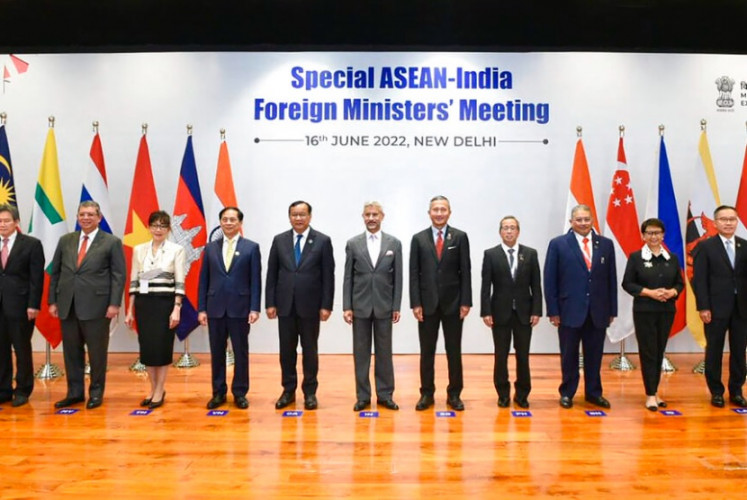Governor revives colonial racism despite reforms
Anies’ speech is feared to mark a turning of the tide and a return to discrimination and unequal treatment.
Change Size
 Congregation members of Tri Dharma Temple burn prayer papers as a symbol of gratitude in a ritual called “pao oen” at Tien Kok Sie Temple in Pasar Gede, Surakarta, Central Java, on Jan. 15. (JP/Ganug Nugroho Adi)
Congregation members of Tri Dharma Temple burn prayer papers as a symbol of gratitude in a ritual called “pao oen” at Tien Kok Sie Temple in Pasar Gede, Surakarta, Central Java, on Jan. 15. (JP/Ganug Nugroho Adi)
G
overnor Anies Baswedan triggered controversy with his inaugural speech by using the term pribumi (indigenous Indonesians). The term, together with non-pribumi, is explicitly prohibited in government activities and policy in a 1998 presidential instruction issued by then-president BJ Habibie, following the deadly May 1998 riots, which included the rape and murder of Chinese-Indonesians and burning of their property.
This act obligates officials to refrain from using the term in order to ensure equal treatment and eradicate racial discrimination in Indonesia.
Furthermore, this act also strongly mandates officials to provide fair and equal access to public services. The term pribumi has been abused to restrict ethnic minorities’ access to business permits, financial institutions, civil registration, education, health care, employment, salary and other rights.
Anies also said in his speech that since Indonesia was now independent, “[i]t’s time for us to be the hosts in our land.”
Since the 1945 Proclamation of Indonesian Independence, the founding fathers who had academic legal backgrounds, such as Soepomo, Muhammad Yamin, Besar Mertokusumo, Soenario, et al, wanted to destroy the article in the Dutch Indies statute which made legal distinctions between “Europeans, foreign Orientals and indigenous people.” Their aim was that everyone on Indonesian soil must be treated equally.
Sadly, Anies’ speech appears to have revived the spirit of colonial rule despite all efforts at legal reforms to end discrimination on the basis of race, ethnicity and other criteria. The 2008 Elimina- tion of Race and Ethnic Discrimination Law subjects violators — those proved of discriminating based on ethnicity or race — to a year in prison and a fine of Rp 100 million (US$7,000).
Anies’ speech is feared to mark a turning of the tide and a return to discrimination and unequal treatment. Meanwhile, the police may investigate whether the speech could be considered a criminal offense under the aforementioned law. It has been used in many criminal cases where the suspect was accused of discrimination, such as in the cases of Jonru and the Obor Rakyat online media. One would hope that there is no place for racial discrimination on Indonesian soil.
















